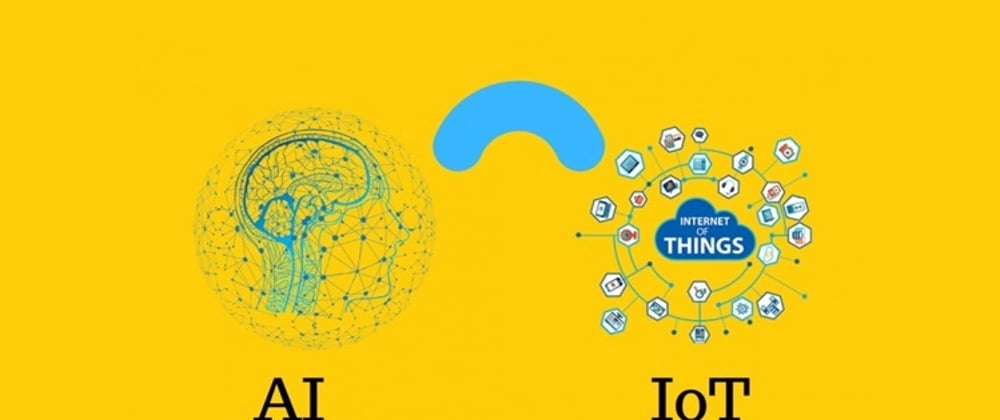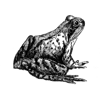Do you remember people breaking textile machinery during the age of the Industrial Revolution? These people were afraid that machines would take away the craft that they have learned throughout their lives. Guess what? We are looking ahead to a new industrial revolution. The 4th Industrial Revolution will once again alter the way people live and work. And Artificial Intelligence (AI) and the Internet of Things (IoT) have a say in this process.
What are AI and IoT? What is the future like? Are the scary stories myth or reality? Read this article if you want to make sense of these buzzwords.
What are Artificial Intelligence and IoT Technologies?
In today’s world, AI and IoT go together. Think of human vessels that provide blood to the brain. In effect, IoT devices are the vessels and AI is the brain. IoT captures a tremendous amount of data from multiple sources. For example, sensors collect data on temperature, vibration, electricity, and air composition with accuracy. When you collect data, it should be processed to make some sense or find patterns. It is the AI devices that catalog, label, and store the data to look for patterns and trends. Today the question of how to make an IoT app is in the minds of many people.
The two are so blended that a unique branch of study is created called the Artificial Internet of Things or the AIOT in short. Data collection capacities of IoT combined with data processing capabilities of AI allow the creation of intelligent machines that can stimulate smart behavior and contribute to decision-making with little or no human interference. We are on the brink of a new revolution and how to build an AI is becoming more and more simple to answer.
A prime example is Tesla´s autopilot features. This demonstrates how smart a car can be through software, traffic data, sensors, and camera sensors.
Another example are smart home appliances. Today you can buy a robot vacuum to handle the dirty work for you, or tell Alexia to “turn on the light”.
Where are we going? The new technology is going to shift the way we interact with other devices and with each other. Let’s examine AI and IoT in various industries, first.
AI-Enabled IoT Applications in the Various Industries
Today, we witnessed a lot of AI-enabled IoT applications in action. Businesses are concerned about ''how to make an IoT app'' and ''how to build an AI''. The new technology embraces anything from health to manufacturing to retail. Let's have a look at some of these sectors.
Robots and manufacturing
Manufacturing is one of the sectors that largely deploys AI-powered IoT applications. In warehouses like Amazon, you can see robots that do part of the manual job. Robots are turning smarter with the support of sensors and a vast amount of data transmission.
An example is the Starship Technologies company. Starship robots are used to deliver packages to consumers and businesses. They can navigate streets autonomously while carrying goods to deliver to consumers.

Tracking and monitoring systems
Self-driving cars and the Global Positioning System (GPS) are perhaps some of the most well-known devices that are powered by AI. Originally established for military use, GPS is not applied for civil uses as well. For example, a company can track the progress of a delivery truck or a parent can check on the location of their child.
Finance industry
Today, we widely use mobile banking, ATM, smart cash points, etc., and never think that they are powered by AI algorithms. A lot of banks apply AI-powered algorithms to detect fraud or speed up customer services. BNY Mellon, one of the world's largest cross-border payments service providers that processes more than $1 trillion daily, built a collaborative fraud detection framework. The bank utilized over 100 million data samples. As a result, it improved fraud prediction accuracy by 20%.
Healthcare industry
The use of AI-powered IoT devices in the healthcare industry is tremendous. For example, a report AI platform was announced in March 2019 which is expected to help identify and anticipate cancer development. The new technology is also used in drug discovery and clinical trials. The two other sectors that are impacted by AI are the improvement of patient outcomes and pain management.

Travel and leisure industry
From chatbots to smart baggage handling – AI-powered IoT devices are revolutionizing the travel and leisure industry.
Thanks to AI, travelers no longer need travel agents to search for flights or accommodation. Chatbots have taken the place of travel agents allowing travelers to book anything from flightst to accommodations to vehicles. The travel reservation giants like Booking.com, Skyscanner, and Expedia utilize powerful AI algorithms that help them assist their customers without even human involvement.
Customer service has become super easy with robots assisting customers to find their gate in a busy terminal. You don't need to wait in a queue to get information. Some popular airports and hotels have deployed such robots to assist customers like the robot in London Heathrow airport.
In short, robotization is extensively employed in the travel and leisure industry and this trend is developing day by day.
Retail industry
The retail industry has been using traditional analytics for decades. But it is through the use of AI and Machine Learning (ML) that they could raise the data processing to a new level. A new world of possibilities has been opened that utilize hundreds of AI/ML models.

Cashier-free stores are just one example. The Amazon Go and Just Walk Out shopping technology is applied to shopping today. The Amazon account deducts from your purchase any time you pull something out from the shelf or put it back when you walk out of the shop. This cuts the number of staff members that process the transaction to six or twenty human employees at maximum instead of a full organization.
Logistics and transportation industry
New vehicle technology backed by the smart infrastructure and autonomous driverless trucks and drones will change how cargo is managed. We will witness anything from courier drivers wearing smart uniforms and smart watches to smart vehicles on smart roads. AI-powered IoT devices are changing how decisions are made, how routes are chosen, and how the fleet is managed.
The DHL, global logistics provides, utilizes AI and IoT applications for logistics optimization. The whole process of manufacturing, logistics, transportation, and even warehousing is changing, making the logistics and transportation industry more productive, efficient, and profitable.
Security and surveillance industry
Security and surveillance systems are on the rise with the introduction of AI technologies. This includes smart city platforms, facial recognition systems, and smart policing. AI applications are providing security solutions and platforms for different camera manufacturers like Arecont Vision, Avigilon, Bosch, Canon, Cisco, and Extreme CCTV.
The Future for AI-Powered IoT Devices
We are in the midst of the 4th Industrial Revolution focused on digitalization and data. But what will the future be like? Are we going to rely on machines only? As Marc Benioff, the founder of Salesforce says, there is a crisis of trust in technology. This brings us to a new level – the 5th Industrial Revolution.
The 5th Industrial Revolution brings back humans to the workplace. If the 4th Industrial Revolution was based on robotics, AI, virtual reality, augmented reality, the 5th Industrial Revolution is based on consciousness. It is based on deep, multi-level cooperation between humans and machines. We will witness the personalization of AI-powered IoT devices where human involvement is more than we witness today during the 4th Industrial Revolution.
Why is this process going on? People are divided into two groups when talking about AI-powered IoT devices. The first group is inspired by the innovation and the efficiency and growth AI and IoT can bring to the world economy. On the other hand, the second group is full of skepticism and fear. They see the images of The Terminator, Blade Runner, Space Odyssey, and I, Robot.
There is also a fear that robots can put humans out of work. Others experience anxiety over security and data privacy. They worry about how the data is collected, stored, and used.
Perhaps these fears provoke the 5th Industrial Revolution which demands more human involvement in the control of machines.
The future is not as scary as it seems.
Conclusion
Yes, AI and IoT are inspiring. They take hold of many industries and create a more productive and efficient world. The scary stories of robotization have truly shaped the new level of the Industrial Revolution bringing humans back to the process. Are the stories about the Terminator and Blade Runner true? The future will show how much control we will have over the machines. The rosy times of AI and IoT are over. The world needs the 5th Industrial Revolution.







Top comments (0)